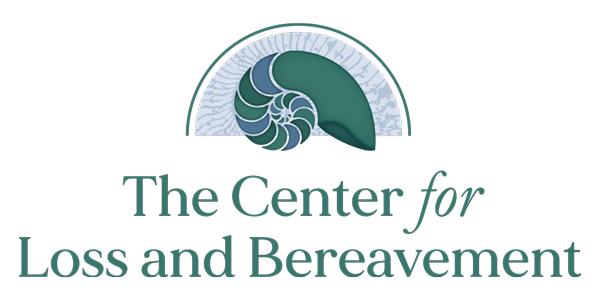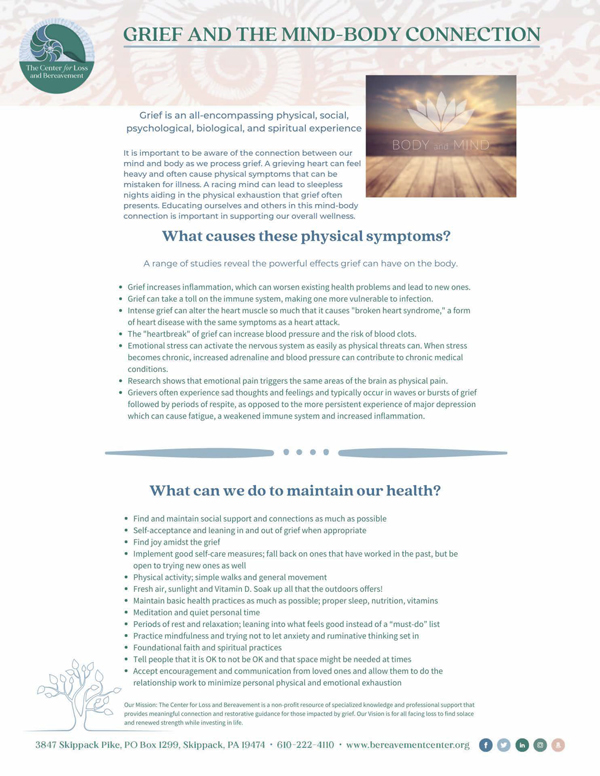CLB Tip Sheets
Grief and the Mind-Body Connection
Grief is an all-encompassing physical, social, psychological, biological, and spiritual experience
It is important to be aware of the connection between our mind and body as we process grief. A grieving heart can feel heavy and often cause physical symptoms that can be mistaken for illness; A racing mind can lead to sleepless nights aiding in the physical exhaustion that grief often presents. Educating ourselves and others in this mind-body connection is important in supporting our overall wellness.
What causes these physical symptoms?
A range of studies reveal the powerful effects grief can have on the body.
- Grief increases inflammation, which can worsen existing health problems and lead to new ones.
- Grief can take a toll on the immune system, making one more vulnerable to infection.
- Intense grief can alter the heart muscle so much that it causes “broken heart syndrome,” a form of heart disease with the same symptoms as a heart attack.
- The “heartbreak” of grief can increase blood pressure and the risk of blood clots.
- Emotional stress can activate the nervous system as easily as physical threats can. When stress becomes chronic, increased adrenaline and blood pressure can contribute to chronic medical conditions.
- Research shows that emotional pain triggers the same areas of the brain as physical pain.
- Grievers often experience sad thoughts and feelings and typically occur in waves or bursts of grief followed by periods of respite, as opposed to the more persistent experience of major depression which can cause fatigue, a weakened immune system and increased inflammation.
What can we do to maintain our health?
- Find and maintain social support and connections as much as possible
- Self-acceptance and leaning in and out of grief when appropriate
- Find joy amidst the grief
- Implement good self-care measures; fall back on ones that have worked in the past, but be open to trying new ones as well
- Physical activity; simple walks and genera movement
- Fresh air, sunlight and Vitamin D. Soak up all that the outdoors offers!
- Maintain basic health practices as much as possible; proper sleep, nutrition, vitamins
- Meditation and quiet personal time
- Periods of rest and relaxation; leaning into what feels good instead of a “must-do” list
- Practice mindfulness and trying not to let anxiety and ruminative thinking set in
- Foundational faith and spiritual practices
- Tell people that it is OK to not be OK and that space, might be needed at times
- Accept encouragement and communication from loved ones and allow them to do the
Join Our
Mailing List
Donate
Today
Request
Information

Affiliations
• NACG
• CBEM Changemaker
• ADEC
• Charity Navigator
Quick Links
About Us
Individual & Family Grief Counseling
Volunteer
News
Grief Support Resources
Contact
Ph: 610-222-4110
Fax: 610-222-4116
3847 Skippack Pike
P.O. Box 1299
Skippack, PA 19474
Support The Center For
Loss and Bereavement
